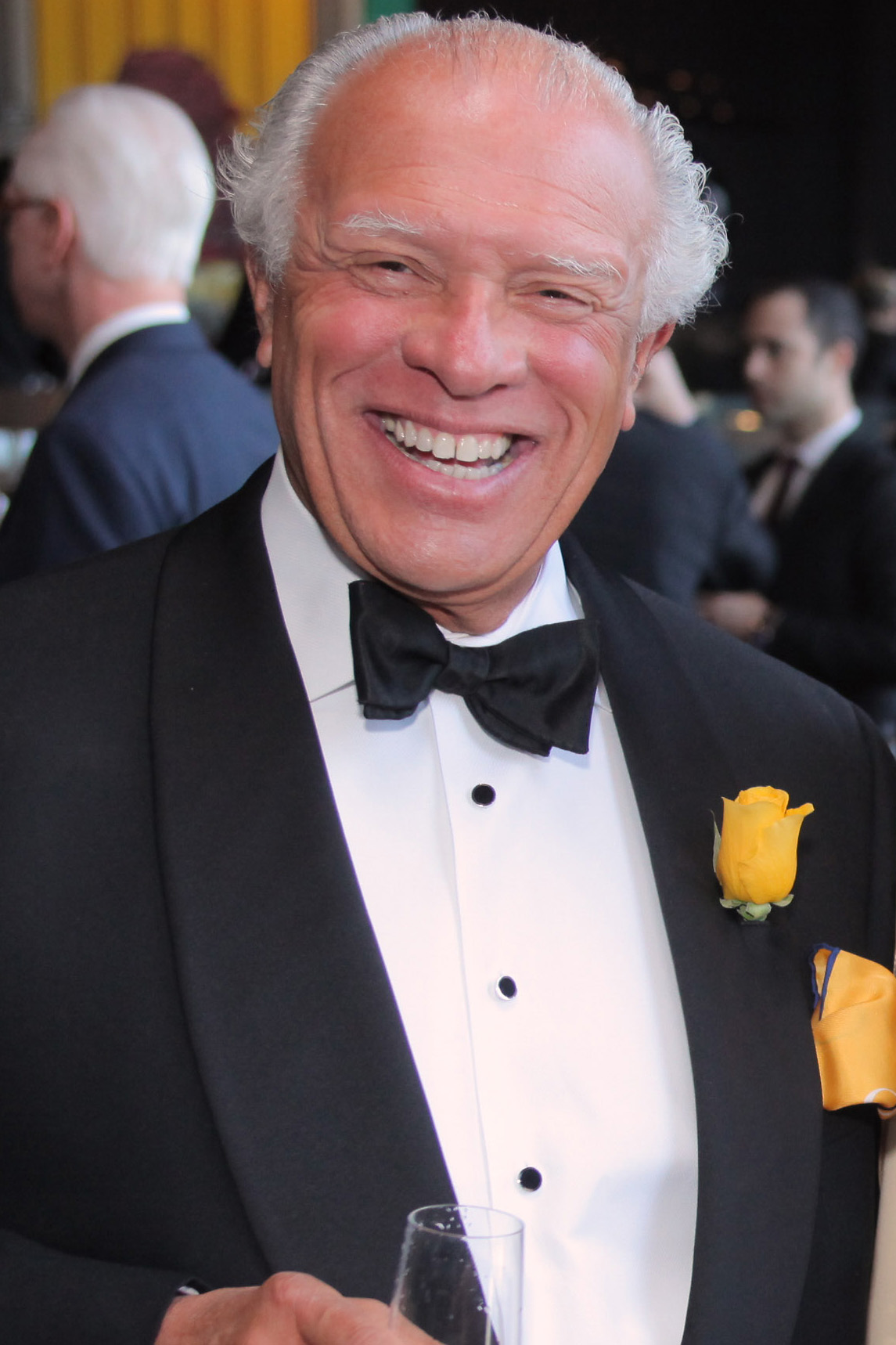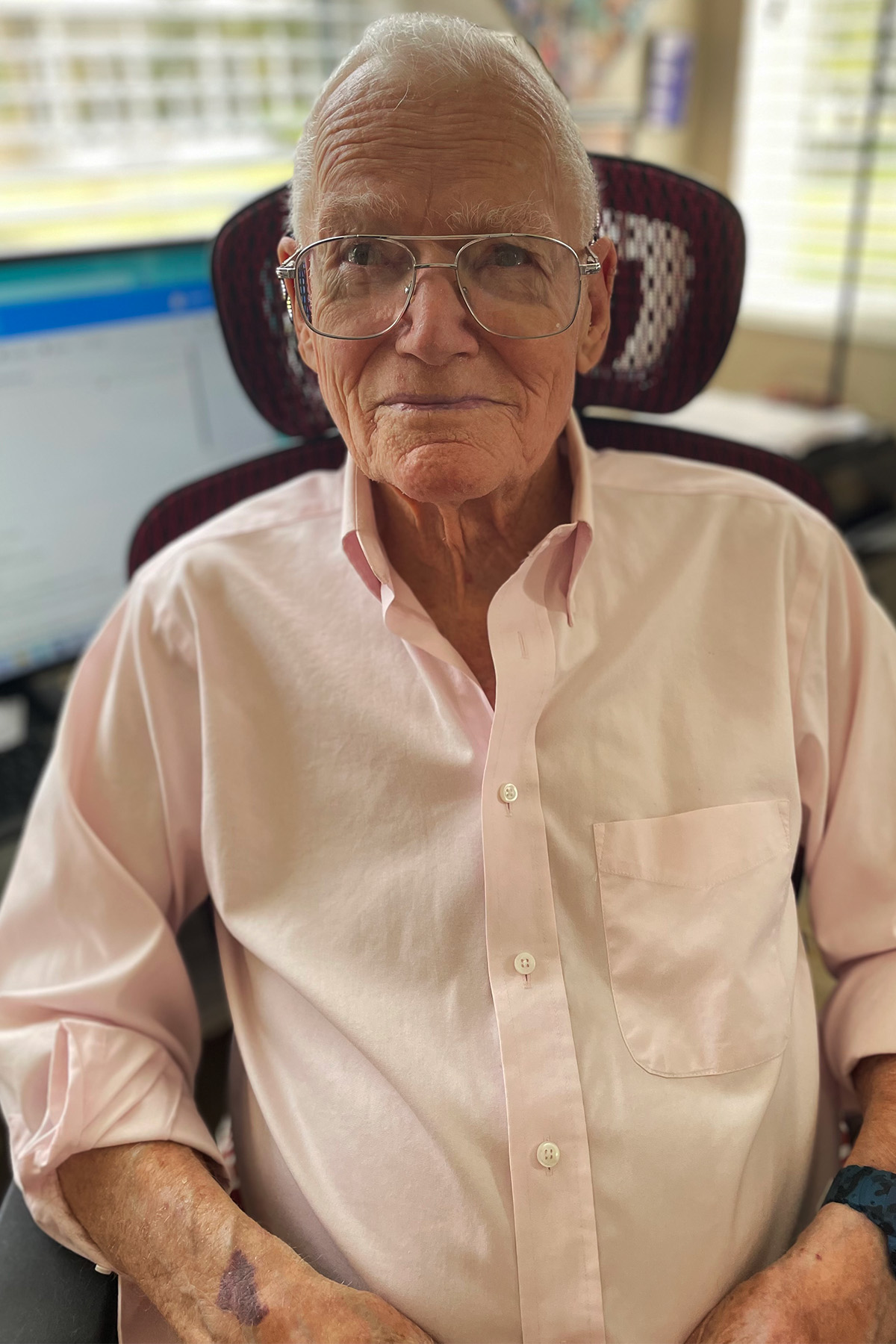Late last year, OPC member Andrew Lluberes mentioned that 2024 would mark his 50th year since joining the OPC, and wondered if there were others who had earned the same distinction. After poking around in OPC archives, we reached out to Lluberes and four other members who had passed the 5-decade mark and asked them to reflect on their careers and time with the OPC. Many thanks to Lluberes, as well as Robert Essman, Virginia Castleton, Irwin Chapman and Robert Black for sharing memories.
Lluberes said he joined the OPC in 1974 a few months after he was transferred from the Pittsburgh bureau of United Press International (UPI) to its world headquarters in New York. In October, he moved to Reuters, which had offered him $10,000 more in salary. During his eight years at Reuters, he convinced the company to participate in the OPC Annual Awards and other journalistic competitions, something the company had not done beforehand.
Lluberes left Reuters at the end of 1982, he said, to fulfill a dream of owning his own business and living in the Caribbean. “The adventure, though great fun, did not work out,” and he returned to New York after a year and a half and became a media consultant, snagging a contract as the news editor at NBC Teletext, a news and information program NBC and Panasonic hoped to provide via TV screens. The project, Lluberes said, turned out to be a forerunner of the Internet.
In 1984, Lluberes, a bilingual Hispanic, applied for a position at the U.S. Information Agency (USIA) in Washington as the senior editor in the Latin American office of the Press Division. Over the next 11 years, he traveled throughout Latin America and the Caribbean, reporting on the region’s civil wars, elections and historic transformation to civilian democratic government and market-based economies. The job marked the beginning of what turned out to be more than 30 years as a U.S. government spokesman at five agencies under Presidents Ronald Reagan through Barack Obama
Lluberes retired from the U.S. Department of Homeland Security at the end of 2014 and moved to Barcelona for 5 and a half years, returning to the U.S. in December 2020 after the Biden-Harris victory. He now lives in Sarasota, Florida, and has maintained his OPC membership and attended as many OPC Annual Awards Dinners as possible.
Robert Essman, who joined in May 1974 and is also celebrating his 50th anniversary with the OPC this year, recalled first meeting OPC members at “2 West Club,” while attending events for the Midtown Turf, Yacht and Polo Association, which included sports writers such as John Groth, a veteran sports and war-correspondent illustrator who was an OPC member at the time, and Red Smith of the New York Herald Tribune and The New York Times, among others.
“I was quite young and a bit overwhelmed being in their company and even more impressed that they never made an issue of my youth!” Essman wrote.
He said that it was at one of those meetings when Peter French, who was redesigning Business Week magazine for its debut on the newsstand, asked Essman to design a new logo for the OPC. That black-and-white logo, which is still used by the OPC Foundation, was in use by the OPC club until 2017, when Vera Naughton designed the color logo currently in use.
“My inspiration was the fact that almost no one used the full title, everyone called it ‘The OPC,’ so that was what I proposed,” he said, adding that Robert McCauley, an artist with Business Week, created the map extensions to fit the letters he created.
“Needless to say, I am proud of the creation,” Essman said. “In the same period, I created the ‘76’ logo to mark the NYC Bicentennial Celebration. At a time when publishing was at a low, I volunteered and produced two issues of the annual OPC Dateline magazine.” OPC records showed that Groth and French were the two references listed on Essman’s member application.
Prior to working at Businessweek, where he eventually became creative director, Essman worked in the layout department of LIFE Magazine. In 1969, he was tapped as creative director of the LIFE Special Projects Department where he created the LIFE special issue “To The Moon and Back.” In the mid-1970s, Past OPC President Dick Stolley invited him back to Time Inc. to design and produce the launch of People, where he spent the next eight years as Creative Director.
Virginia Castleton, formerly Widenmyer, who joined the OPC in 1971, recalled that she was sponsored by Richard Thomas, her husband and an early OPC member, and Louis Lochner, a Pulitzer Prize winner, and Judge Allman, who was referred to as an “Old China Hand.”
She and Thomas lived in Paris, with Richard working for Hearst publications while she wrote for a French news agency. After a few years, they returned to the U.S., where Thomas passed away. Castleton said she later became a feature writer for the Philadelphia Bulletin before moving on to Rodale Press, as a columnist, during which time they published her first two books on self-care using “material I picked up from various sources and interviews in Europe and here in the States.”
Castleton was with Rodale Press for 14 years, during which she married David Widenmyer, executive vice president and treasurer of Rodale, and the two continued traveling to countries where the company’s books and magazines were published at that time.
“Eventually we retired and moved to my home state of Louisiana, dividing our time between Florida and Louisiana where David pursued golf and we both enjoyed life on the bayou,” she said. “However, David passed away after several years in Louisiana and, restless as always, I moved to Florida year-round, where I have lived now for over 20 years.” She has a son, Ronald Michail, who lives with his wife Carole in New Jersey. His two sons, Joshua in Scottsdale, Arizona, and Seth, who is in Turkey pursuing a doctorate at a University there and married to Serap. “Of memories, I have more than a few, and at the age of 97 marvel at the fascinating people I have met, the activity involved, plus the losses I carry with me and the pleasures of the then world,” she said. “And my memories bring back my first OPC event at the Waldorf and the pleasure of hearing fascinating speakers and dancing in the beautiful marble ballroom. And now, the world is brought to me in lectures, concerts, and others with memories to share, in the place to which I have finally fully retired. Thank you for being an additional pleasure in my life.”
Irwin Chapman, who joined in August 1959, wrote a detailed series of pieces in early 2021 recounting his life and storied career.
After earning an undergraduate degree from New York University and attending one year of graduate school, during which he served as campus correspondent for The New York Times, he was drafted into military service and was posted in Salzburg, Austria. There, he worked as staff announcer at the studios of the Blue Danube Network of the Armed Forces Radio.
He returned to New York and became a news writer for Radio Free Europe, and took freelance trips to Haiti and Cuba to report for NBC radio.
“A year or so later, I read that a new radio news service was being started by George Hamilton Combs,” Chapman wrote. “Called Radio Press, its premise was that, with entertainment programming gravitating to television, local radio stations were ready to drop their network affiliations if they could get news spots from a low cost syndicate. I was one of the original hires. Combs sponsored my OPC membership.”
His career included covering several big stories, including the 1960 Republican convention in Chicago, was at the White House during the Cuban missile crisis in 1962, the funerals of John and Robert Kennedy, Martin Luther King’s “I Have a Dream” speech in 1963, the civil rights movement in Mississippi and Alabama, and postings in Moscow for three years starting in 1968, Calcutta in 1972, and then Germany and Egypt. He covered the Vietnam War, and “travelled all over Asia for news coverage, from martial law in the Philippines to a hijacking in Thailand, to floods in Pakistan, to American draft evaders in Australia. I took a camera crew for a fresh look at Vietnam. We filmed a story on everyday life there, and after it aired, the New York anchor, Harry Reasoner, wondered in his commentary, how many more years would the newscast send a crew to update the story.”
Chapman also worked for the Cornel News Service, as a professor at the Georgetown University School of International Journalism and Diplomacy, and as speaker at various colleges, cruise ships, talk shows and at the U.S. Information Agency. He worked for CNN Business News from 1991 to 1997, and as Washington correspondent for Bloomberg radio and television. He said during his travels, he likes to meet with “well-informed colleagues in local bureaus. If expatriates we meet working abroad hint that they might be ready to return to the States, our response tends to be: ‘Are you sure?’”
Robert Black wrote that at 94 years old and 68 years as an OPC member, he “may be (one of) the longest serving member(s) of the OPC still kicking.” He said he joined in 1955 at the behest of Bob Considine, who was OPC president at the time.
“I was a student at Columbia J School and covered an OPC luncheon,” at the OPC’s 39th Street headqharters, he said. “My eligibility was based on my being a staffer on Stars & Stripes in Tokyo during the Korean War – in which I started out as an infantry rifleman…in the middle of that war!”
He later worked as a freelancer and held several public relations jobs, running his own small agency from 1974 to 2015 while freelancing in sports journalism.
Black became an adjunct professor of journalism at Florida Southern College in 1995. He said he taught journalism and filed stories for local papers until about two years ago.
In January 2021, he wrote a piece for the OPC recounting his career and history with the OPC, in which he remembered co-founding the Overseas Yacht Club, “an OPC group of frustrated former sailors – with such worthies as Ruth Biemiller, Charlie Schreiber, Al Wall and others who stayed occasionally sober. I was the first Fleet Chaplain, which explains a lot.”
“Back in the days when I was drinking (!), the bar of the OPC was a wondrous place of top journos and some captains of journalistic organizations. Great stories every day at lunch. Brilliant and smart men and women. It was a joy (and a learning experience) to be part of it.”





